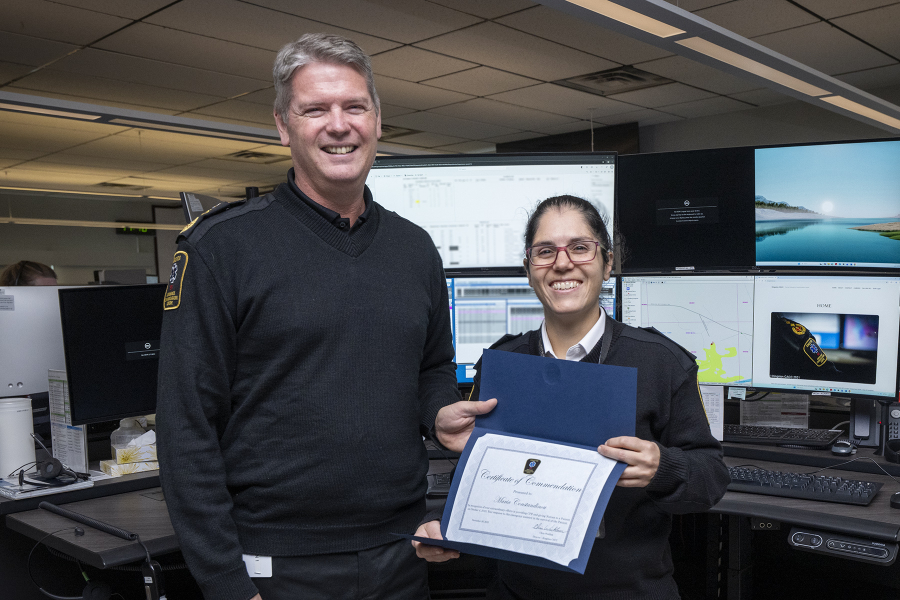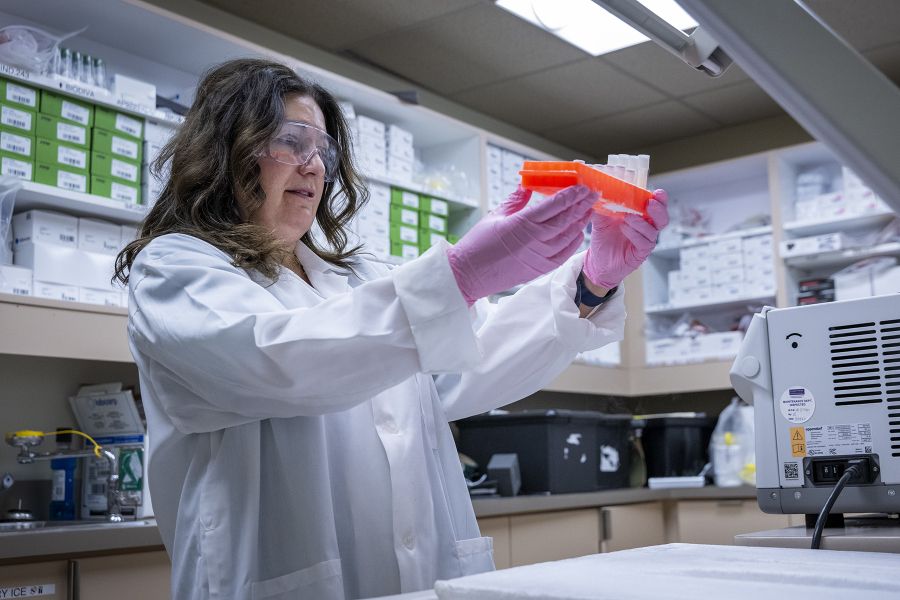Effective immediately masking is required for everyone when present on all inpatient units, in the Emergency Department (ED), the Urgent Care Centre (UCC), and the Children’s Outpatient Centre (COPC).
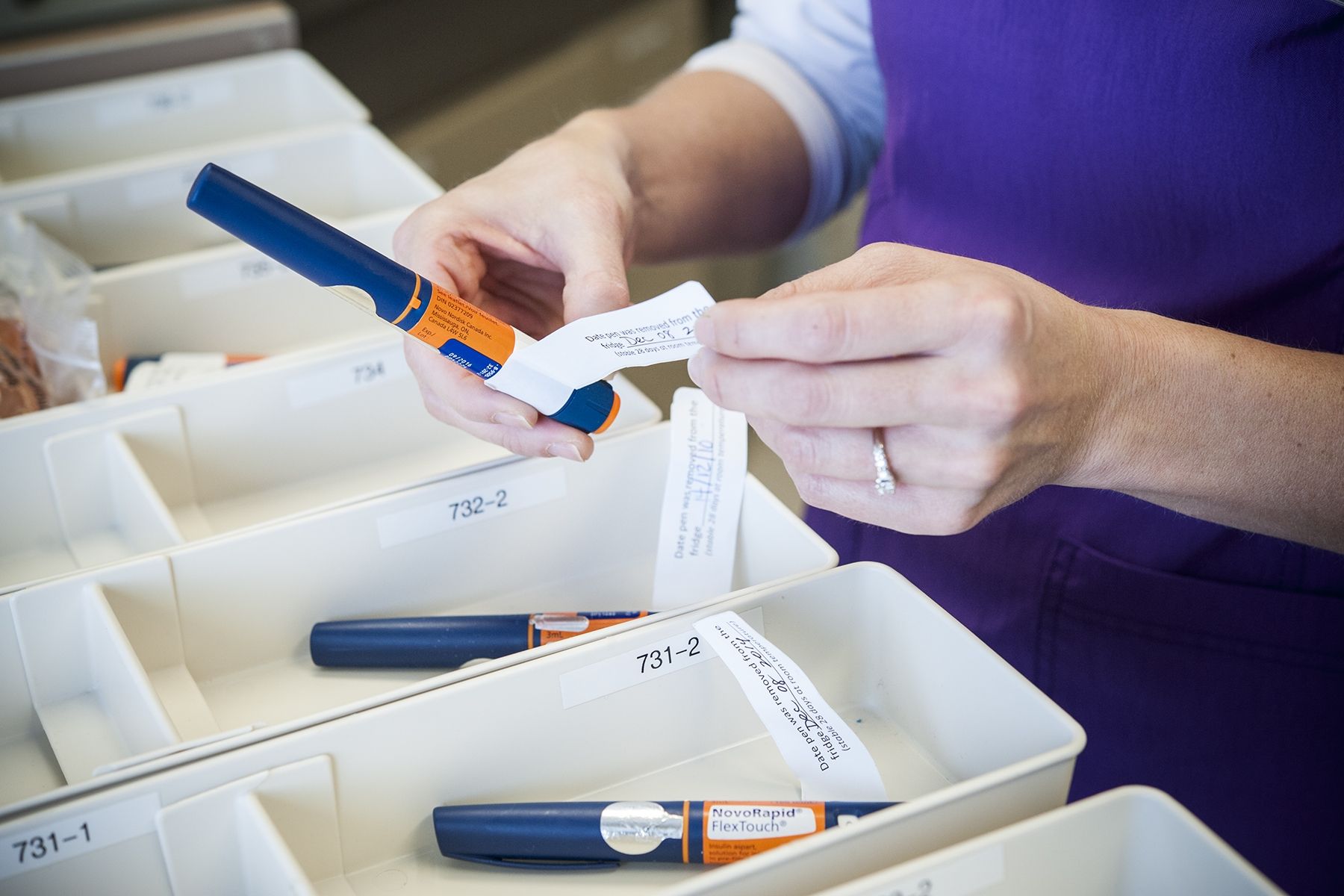
Insulin is an often used drug at Kingston General Hospital as it’s given to an average of 160 patients each day. Now, we have a new insulin pen in place across the hospital that will help ensure the drug is delivered more safely for both patients and staff.
Before now, insulin was delivered to patients here using multi-dose vial and syringe needles. For patients, this method of delivery sometimes led to an incorrect dosage when product names were confused, as well as some discomfort due to the longer needle involved. For staff, this type of needle could also sometimes lead to a needlestick injury.
The brand new insulin needle pen is expected to decrease, if not eliminate, these problems, as it includes a safety shield, a shorter needle, and patient-specific cartridges.
“Last year, insulin placed seven out of 10 for top medication incidents at KGH,” says Veronique Briggs, co-Director of Pharmacy Services and chair of the Medication Safety Committee. “By switching to prefilled and reusable pens we will see a marked decrease in medication errors and an increase in quality of care for patients.”
Another big benefit of this switch is the continuity of care that patients who require insulin will now experience.
“We know that approximately 90 per cent of patients who need insulin are using insulin pens at home,” says Briggs. “By switching to insulin pens, we are now aligning ourselves with the tools that most patients are already familiar and comfortable with.”
In addition to reducing medication errors, these new pens will also help reduce preventable harm to staff, which is one of the improvement priorities laid out in the Annual Corporate Plan. Already this year, we’ve seen 59 needlestick injuries with about 20 per cent of them involving insulin needles. By converting to insulin pens, we can expect to avoid at least 10 needlestick injuries each year.
“Preventing needlestick injuries in our staff is a top priority, and we are expecting the switch to these new pens will quickly pay off as they greatly reduce the risk to staff,” says Joanna Noonan, Manager of Occupational Health, Safety and Wellness.
Gallery
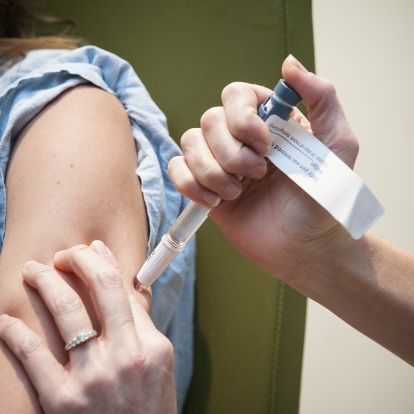
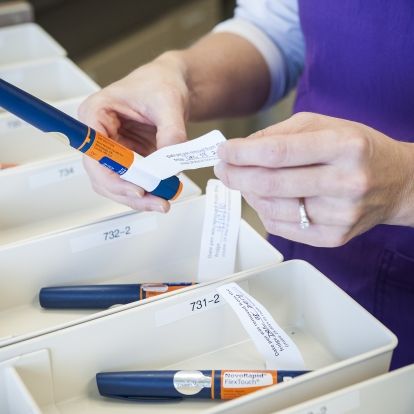
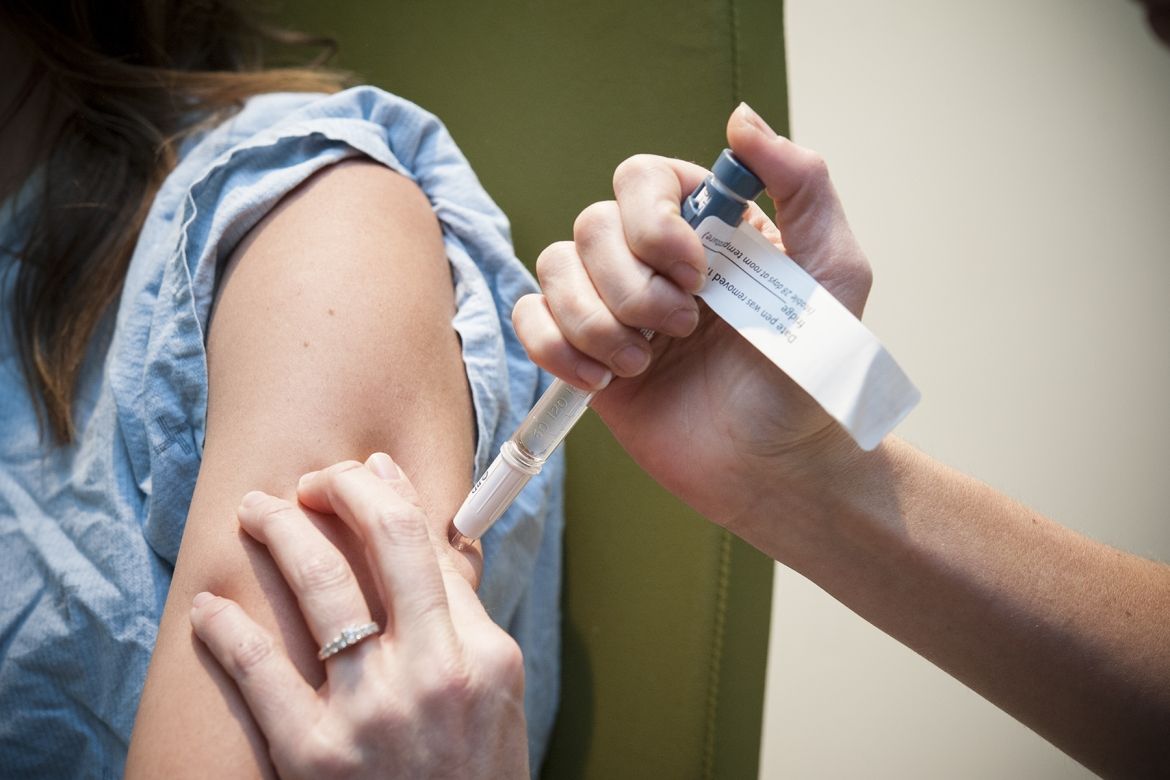
The new insulin pen is now in use across the hospital.
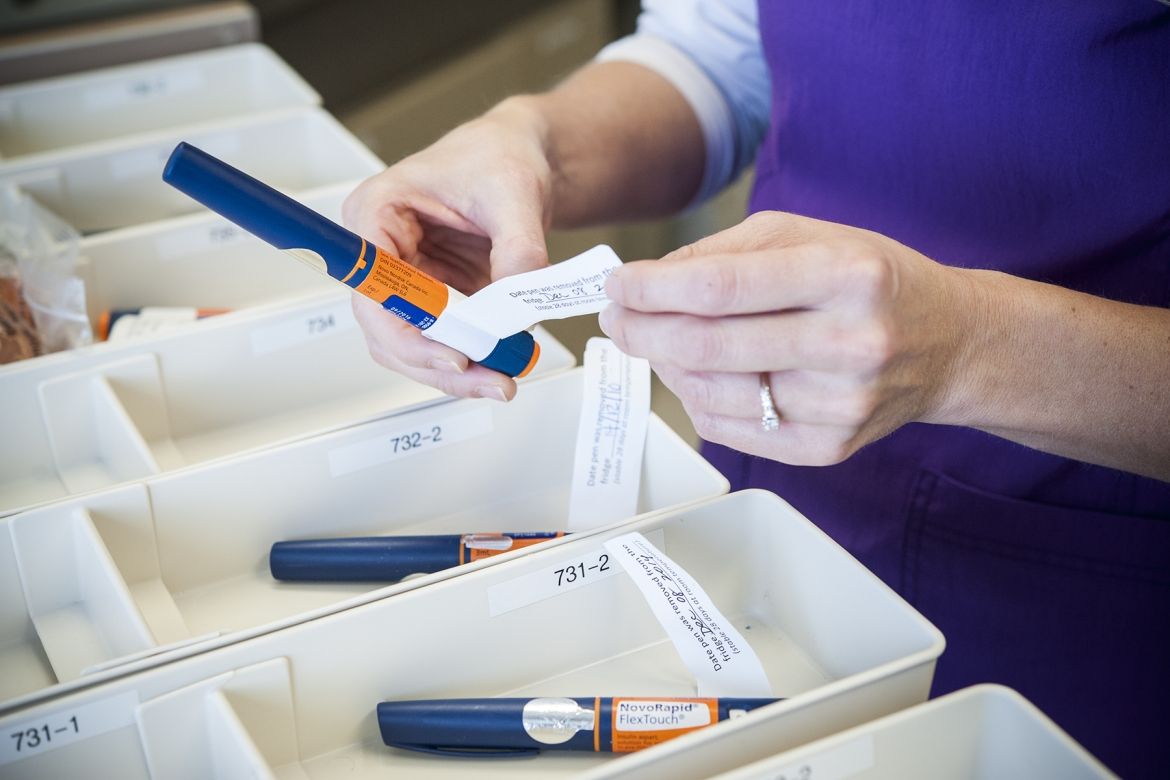
The new insulin pen is now in use across the hospital.

